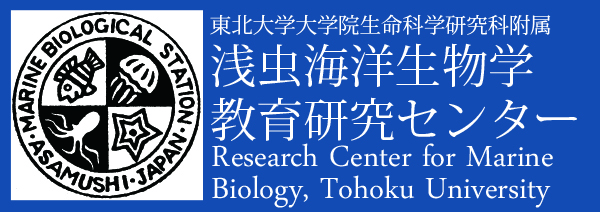We are delighted to announce that the Shinkishi Hatai International Marine
Biology Course 2024 will be held at the Research Center for Marine Biology
(RCMB), Tohoku University, Asamushi, Aomori, Japan from 5th–11th July 2024.
Who is Shinkishi Hatai?
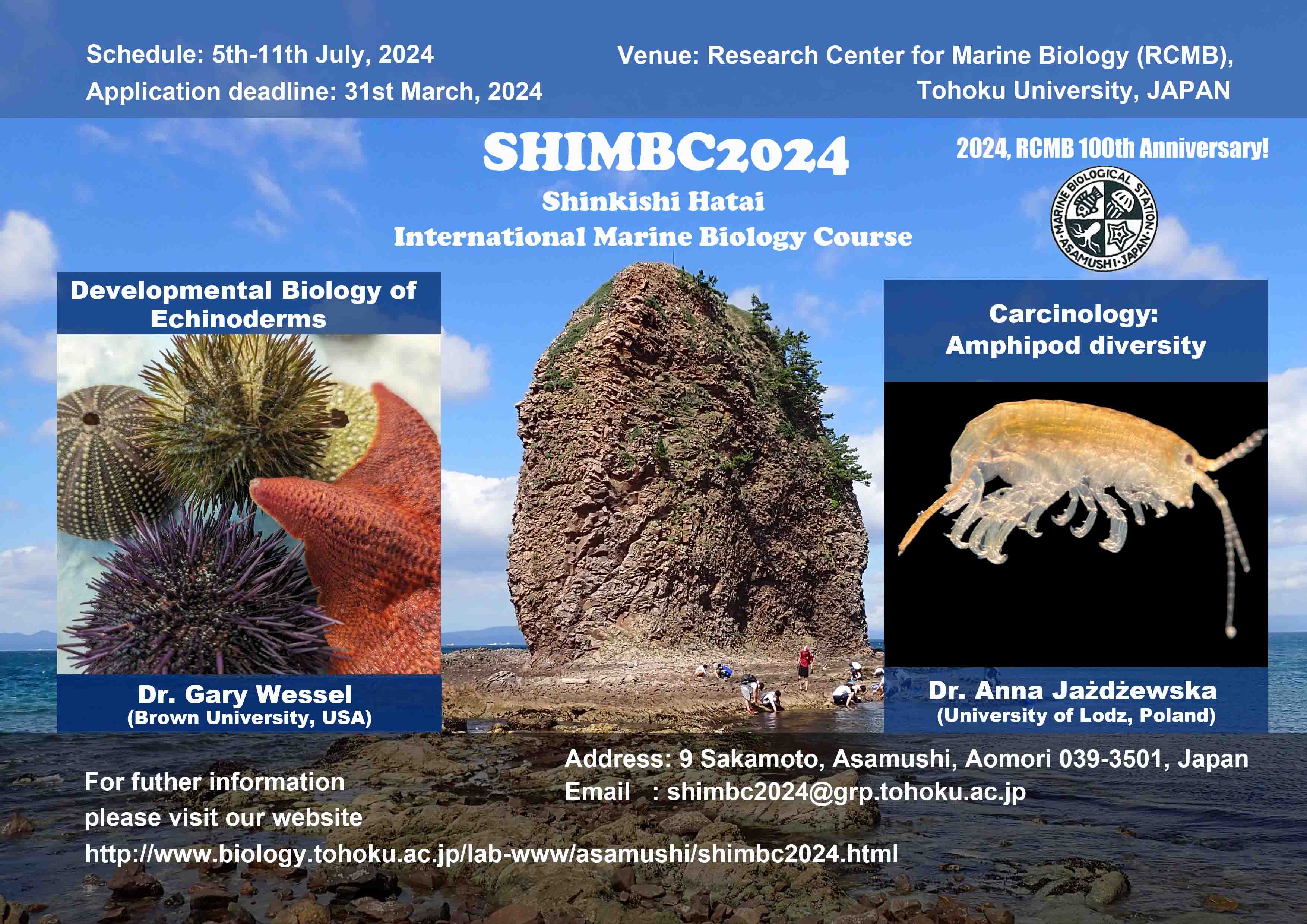
Overview
A marine biology station is the ideal environment to observe live marine organisms and to begin studying marine biology. The marine biology course held at our marine biology station, RCMB, situated on the coast of Mutsu Bay, provides hands-on experience in handling marine organisms and explore the diversity of small-sized invertebrate taxa inhabiting various habitats. The course will be comprised of basic and advanced projects. The basic project will introduce the participants to two fields, developmental biology of echinoderms and carcinology (diversity of amphipods). In the latter advanced project, participants will conduct supervised projects led by instructors, and their findings will be presented on the last day.
Instructors & Projects
Course in Carcinology: diversity of amphipod crustaceans
Instructor: Dr.Anna Jażdżewska (University of Lodz, Poland)
Supporting RCMB staff: Dr. Hiroaki Fukumori
Project : Carcinology: Introduction to amphipod diversity
Collecting benthic organisms in various environments, with a particular
focus on learning observation and identification methods for crustaceans.
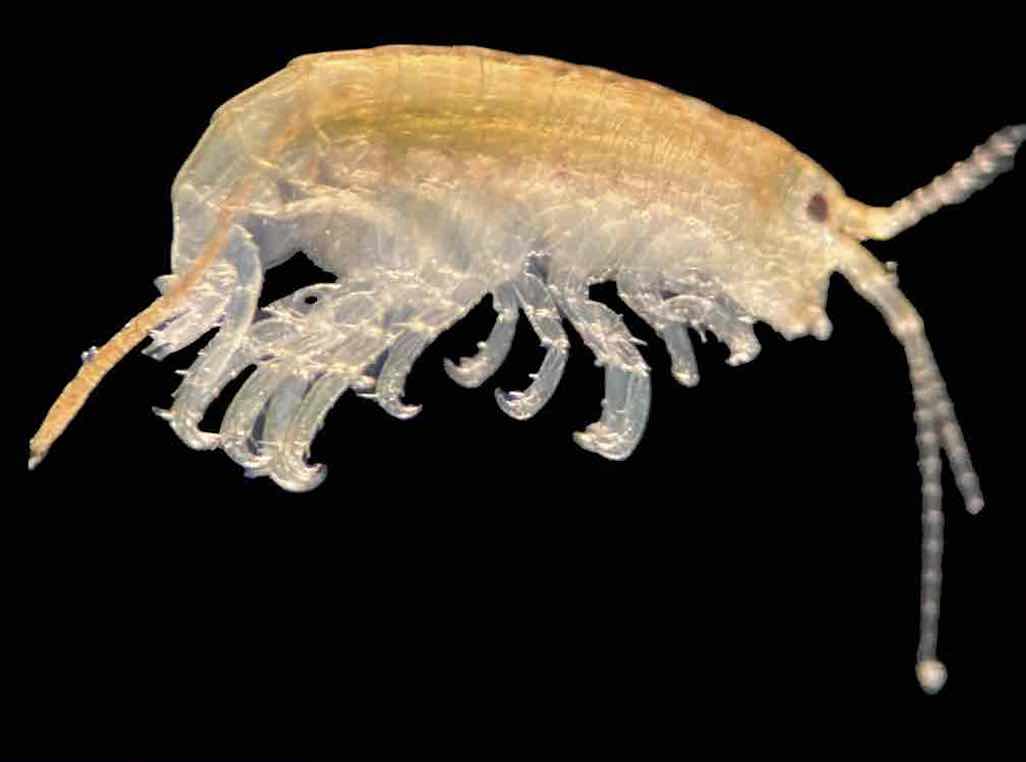
Developmental Biology of Echinoderms
Instructor: Dr. Gary Wessel (Brown University, USA)
Supporting RCMB staff: Dr. Shumpei Morita
Observing the early development of various echinoderms and investigating
the mechanisms of development.
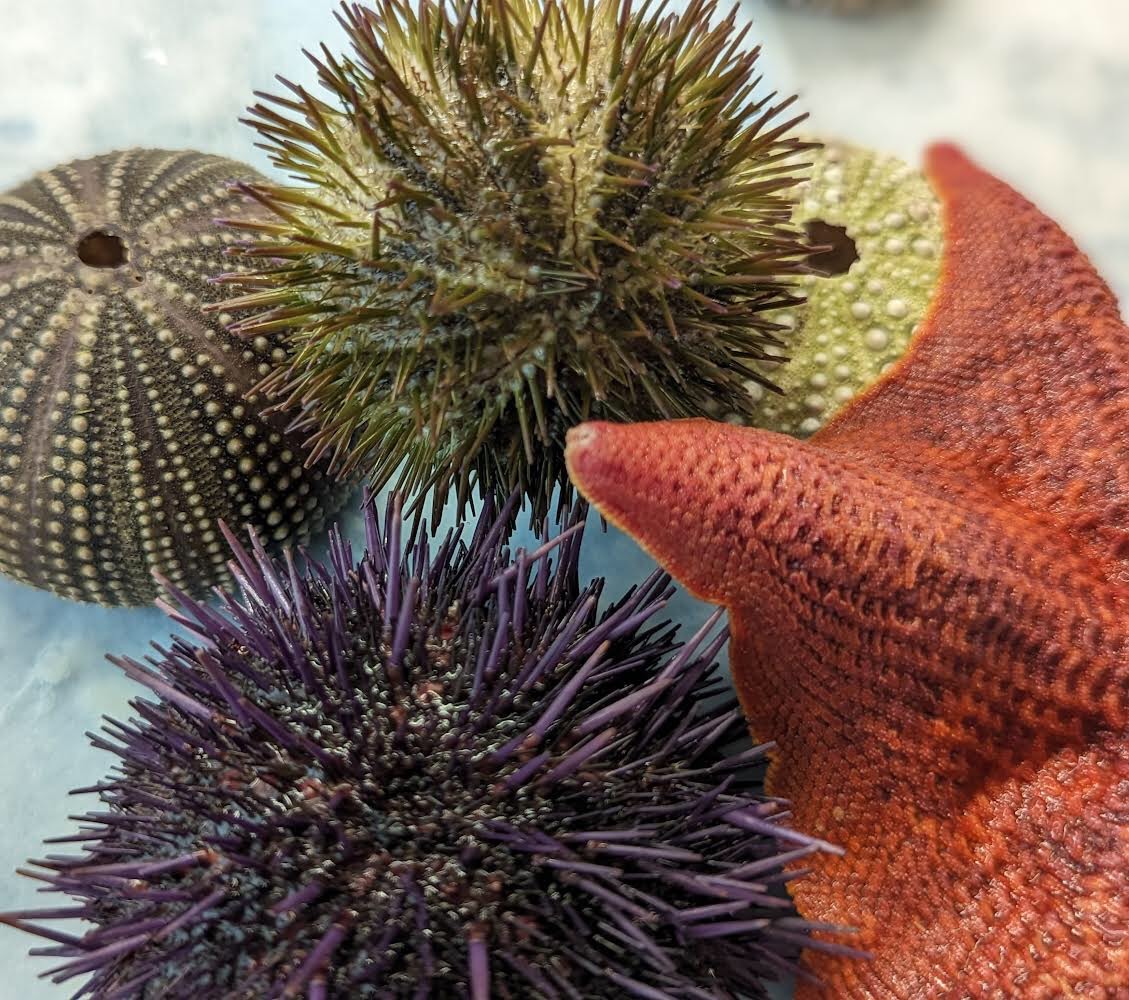
Keynote Lecture
Population genomics for Japanese coastal species: adaptive evolution and speciation
Lecturer: Dr. Shotaro Hirase (Fisheries Laboratory, Graduate School of
Agricultural and Life Sciences, The University of Tokyo)
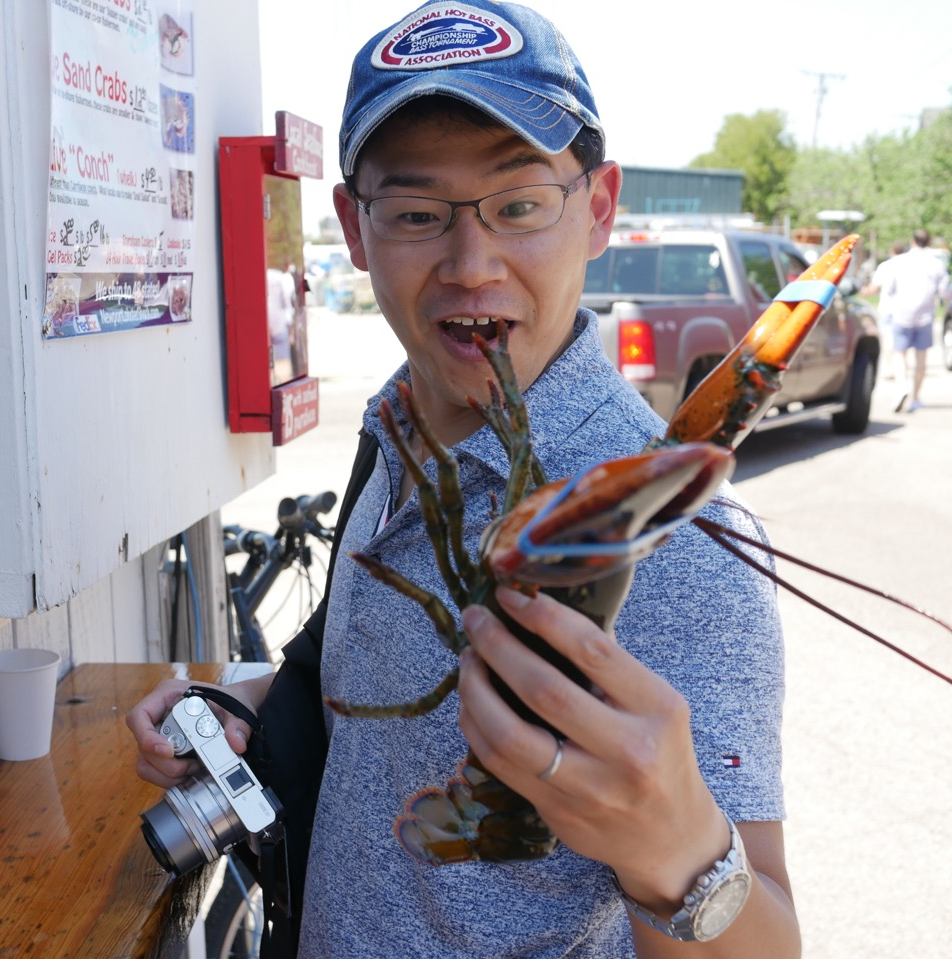
The Japanese archipelago has experienced various geological events and,
due to its long north-south orientation, spans a wide range of climatic
zones. These temporal and spatial variations in the coastal environment
have significantly shaped the biodiversity of coastal organisms in Japan.
Population genetics is a useful approach for studying such historical and
contemporary processes. In this lecture, I will first provide a brief description
of the research field of population genetics and introduce my population
genetic studies based on genome-wide information (population genomics)
focusing on Japanese goby fishes and abalones. Specifically, I will introduce
three examples of my research: the allopatric differentiation in goby fishes
caused by the past isolation of the Sea of Japan and the evolution resulting
from subsequent hybridization; the speciation process of Japanese abalone
species driven by ecological isolation; and the adaptive differentiation
influenced by the heterogeneous environments along the coast of the Japanese
archipelago. Through these examples, I would like to illustrate how temporal
and spatial environmental variations in the coastal areas of the Japanese
archipelago have influenced the genetic diversity of coastal species.
Venue
Research Center for Marine Biology, Tohoku University Click here for detail
Schedule
5th July:
Registration
15:30 Keynote lecture "Population genomics for Japanese coastal species:
adaptive evolution and speciation" by Dr. Shotaro Hirase
18:00 Welcome reception
6th and 7th July:
“Basic project for carcinology” by Dr. Anna Jażdżewska
“Basic project for developmental biology of echinoderms” by Dr. Gary Wessel
Lecture & lab work
8th and 9th July:
Advanced courses for each project
10th July:
Presentations of each project
Farewell party
11th July: Leaving Asamushi
Qualification
The course is open to undergraduate and graduate students (approx. 15 in
total) from any institute, who major in or have an interest in marine biology
or related fields. If the number of applicants exceeds our hosting capacity,
we may have to decline certain applications. Experience in handling marine
animals is not necessary, but priority for acceptance will be given to
students with much interest in marine developmental biology and marine
invertebrate taxonomy. Accommodation and meals are available at a reasonable
rate at the center’s dormitory (for details see the center’s website: For Users). We are unable to support your travel expenses.
Registration
If you are interested in the SHIMBC, please send an e-mail to the following
address by March 31st, 2024. When we receive your e-mail, we will send you an application form with
additional information about the course, accommodation, and other relevant
details. An early notification of your intention to participate will assist
us in optimizing preparations for SHIMBC.
E-mail address: shimbc2024(at)grp.tohoku.ac.jp [Please change (at) to @]
Organizing committee
Dr. Takuya Minokawa (Chair person)
Dr. Gaku Kumano (Director of RCMB)
Dr. Shumpei Morita
Dr. Aiko Iwasaki
Dr. Hiroaki Fukumori
This program is supported by the Ministry of Education, Culture, Sports,
Science and Technology in Japan.
